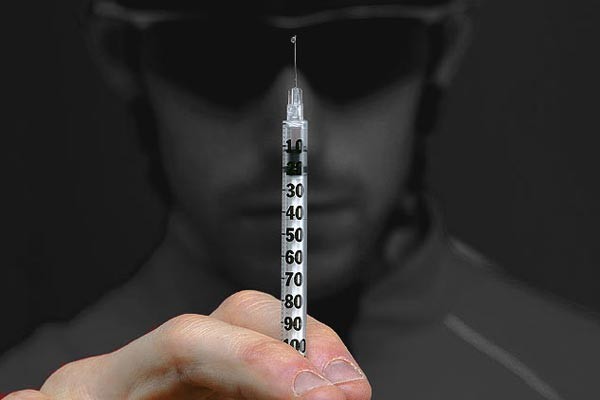Doping agency set to tackle clenbuterol problem


The World Anti-Doping Agency (WADA) hopes to be able to detect clenbuterol's origins soon. Director General, David Howman said the agency is funding research to find a test for the drug that stopped Michael Rogers and Alberto Contador.
"We've got that under the radar and we are conducting several research projects to see where we can get to a situation where clenbuterol, if detected in a sample, can be shown to be taken through food or not," Howman told Cycling Weekly.
"We are hopeful a test is near, but you don't want to project the outcome of research until you actually get there."
Some cattle farmers use the drug to increase production. The anti-doping agency noted it as a problem primarily in Mexico and China. However, athletes may also us clenbuterol to help weight loss.
Spaniard Alberto Contador (Tinkoff-Saxo) tested positive for the drug on his way to winning the 2010 Tour. He claimed he ate a contaminated steak from Spain. The Court of Arbitration for Sport (CAS) partly agreed. It ruled his positive was "likely [due to a] contaminated food supplement than by a blood transfusion or the ingestion of contaminated meat" but banned him for two years and stripped his Tour title.
Aussie Michael Rogers, who also races for team Tinkoff-Saxo, failed an anti-doping test for clenbuterol after winning the Japan Cup on October 20. He blamed the Chinese food that he ate while racing at the Tour of Beijing beforehand.
"I would like to make it very clear, in the strongest terms possible that I have never knowingly or deliberately ingested clenbuterol," Rogers said in a statement after the test.
The latest race content, interviews, features, reviews and expert buying guides, direct to your inbox!
"I understand that it has been acknowledged by the World Anti-Doping Agency (WADA) as well as other anti-doping bodies, that food contaminated with clenbuterol is a serious problem in China."
Two years ago, WADA warned athletes to eat only in restaurants approved by the event organisation or their federations. In January, cycling's governing body, the UCI sent a letter to the national federations and recommended to its cyclists to not eat meat when in Mexico and China. Some cyclists Cycling Weekly spoke with said that they had already overlooked beef when they raced in China to avoid the issue completely.
"There have been many sporting events in China since the issue of clenbuterol arose," Howman said. "We have many discussions with Chinese authorities to ensure that if they are hosting an event that the food that is available is subject to their initial scrutiny and to ensure the athletes that there will not be contaminated meat. And that's been successful in all the events that we've been aware of."
However, athletes remain responsible until WADA discovers a proper clenbuterol test. They must prove where the drug came from or risk suspension. Rogers will have to do the same when he talks with the Australian anti-doping authority.
Gregor Brown is an experienced cycling journalist, based in Florence, Italy. He has covered races all over the world for over a decade - following the Giro, Tour de France, and every major race since 2006. His love of cycling began with freestyle and BMX, before the 1998 Tour de France led him to a deep appreciation of the road racing season.
